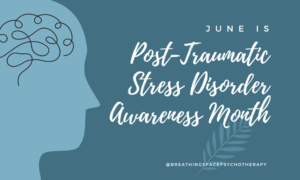The Idea of the Week
When does reflection become overthinking?
Reflection is a skill to (essentially) know yourself better. Reflection is useful for processing events, emotions, or topics. There are many benefits to regularly engaging in self-reflection, and this 10-minute Verywell Mind article discusses the benefits and how to incorporate self-reflection into your routine in more depth.
On the other hand, overthinking involves excessively dwelling on a subject or situation for long periods of time. Most often the topic or situation are things that have happened in the past. The mind may also adapt the topic to think about what it means about your future self.
Let’s begin with some signs that you may be overthinking, from this Verywell Mind article:
- You have difficulty thinking about anything else.
- You replay mistakes in your mind.
- You replay challenging or uncomfortable conversations in your mind.
- You imagine worst-case scenarios or outcomes.
- You often question “why” something happened or “why” you did something.
- You experience a lot of negative thoughts.
- You second-guess your decisions.
- You constantly feel worried or anxious.
Overall, reflection is a healthy skill to process events and emotions. However, reflection becomes unhealthy when we think about the event or topic excessively, judge ourselves, have negative self-talk, criticize our actions and decisions, or compare ourselves with others.
The Practice of the Week
There are many exercises that you can practice to stop overthinking. One exercise may feel paradoxical and ironic—this exercise involves reflection: what are your triggers for overthinking?
As paradoxical as it feels, we are invoking mindfulness in this exercise. Mindfulness involves a present awareness of your thoughts, feelings, and body and observing them as they are without judgment. This 8-minute Verywell Health article outlines a mindfulness exercise and includes 9 more exercises to help you stop overthinking.
Our last resource for this week is an 11-minute video on How to Stop Depressive Rumination and Dwelling on the Past. Emma MacAdam from Therapy in a Nutshell shares how rumination (or overthinking) makes you feel miserable and several exercises to stop dwelling on the past. For instance, some of the exercises include:
- Change your “why” questions into “what” questions. Instead of, “Why am I depressed?”, change it to “What is one small thing I can change to make my life happier?”
- Do not make vague, overarching statements or labels. Swap “never” or “always” with a specific situation.
- For any situation, identify your value and take the action you need. For instance, if the situation is about taking advantage of someone, recognize your value of boundaries and act on that.
Check out the video for more exercises!
News of the Week
Heartbeet Gardenscape’s Workshop:
Herbal Delights: Easy Ways To Incorporate Herbs Into Your Meals
Many people enjoy meals at restaurants complimented by culinary herbs, but few take the extra steps to incorporate herbs into their meals on a regular basis.
This class will teach you easy ways to incorporate readily available herbs into your meals, condiments, and cocktails/mocktails.
Attendees will be provided with handouts to take with them that include an herbal overview, easy herbal recipes, and resources for additional herbal recipes.
May 11th 2-4 PM at the Breathing Space Studio
$35
Have you used KAP with us or elsewhere?
Join our Psychedelic Integration Cricle!
Our Psychedelic Integration Circles are uniquely tailored for those who have embarked on psychedelic (Ket specifically) journeys and seek to meaningfully incorporate their experiences into their lives. Journeys offer a profound shift in perspective and our circles create a space for understanding, acceptance, and transformation.
Tuesday groups – Amelia Peterson, LMHC
Wednesday groups – Meg Tobin, LMHC
Sunday groups – Melissa Compton, LMHC, LCAT
Are you looking to expand your perspective and deepen your practice? We have several opportunities for you to explore!
On Saturday, May 19, Breathing Space and MindSound present a daylong opera time opportunity for 2 workshops! Both are located at the Breathing Space Studio in Erieville, NY.
First workshop: Centering Resilience and Joy: Mindfulness, Yoga, and Sound from 9am to noon.
This three hour workshop will focus on three modalities. We will start with grounding mindfulness practices, go into yoga/movement designed to center and free the body, mind and spirit, and end with a deeply relaxing sound bath. This sound bath will include crystal bowls, gongs, Himalayan bowls, chimes, tanpura, mantra, and more.
Second workshop: Entering a world of Nada Yoga: Pranayama, Yoga, Sacred Mantra from 1pm to 4pm
This workshop will open us to the world of Nāda Yoga, the Yoga of sound. Nada Yoga is a deep and transformational practice that is present in almost all yogic practices: pranayama, asana, yoga nidra, and beyond. Nada Yoga is also seminal in understanding the Asthanga Yoga—the 8 limbs of yoga. This workshop will offer an experiential way to enter Nāda Yoga. We will begin with pranayama, meditation, and movement/asana. The bulk of our time will be spent chanting, no experience necessary. Megan, the facilitator, will guide you at each step, starting gently with humming and moving into sacred chants from different traditions. We will end with a mini sound bath to integrate what has been experienced.
Yoga Nidra Level 1 Training
This is a workshop training on Yoga Nidra for 6 weeks starting April 30. It is virtual and there will be live and recorded content. For more info visit www.mindsound.co
Yoga Nidra CourseExplore the different elements of Yoga Nidra, deep dive into creating Sankalpa, the historical and cultural context, and integrating Yoga Nidra into your lived life. Understand the science behind NSDR and study the connections between Yoga Nidra, sound bath/sound healing, and yoga in this course! For more info, visit www.mindsound.co
Yoga Therapy:
Healing the Mind and Body
Lindsey will be hosting a special 4-week trauma-focused series. Come learn about how your body responds to stress and trauma, followed by Vinyasa Flow Yoga.
This trauma-informed yoga workshop series consists of four sessions. The first half hour of the workshop will consist of psychoeducation covering topics such as the mind-body connection, physiology of trauma, mindfulness exercises, breathwork & more. Following this, students will be led through an hour-long dynamic vinyasa flow.
Each session will have a unique theme, specifically designed to target the body’s physiological reactions to stress and trauma. The themes are
- Release (focus on hips);
- Empower (power flow, focus on strengthening postures);
- Acceptance (focus on heart openers); and
- Peace (focus on balancing postures).
4 Session Series on 6/1, 6/8. 6/15, and 6/22. Sessions are 1 hour and 30 minutes, located at the Breathing Space Studio in Erieville, NY.
The workshop aims to educate and enlighten students about the power they possess to heal from trauma, and release stress.
Flowing with Grief
Engage with your grief through physical movement and breathwork. Let your movement and breath be the emotional release of the grief stored in the body. Use yoga practices, not aimed at strength or flexibility, but rather at nurturing the emotional self and the physical manifestation of grief.
This is a weekly 60-minute session, starting on April 8th at 5:30pm.
$25 | Part of a plan
The yoga practice is accessible to all and you do not need prior yoga experience. It can be performed seated or on a yoga mat.
The Thought of the Week
Wishing you a peaceful week!







